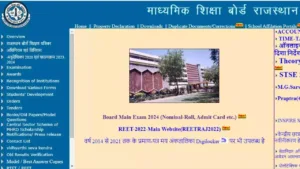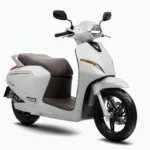In the realm of agriculture, where sustainability and efficiency are paramount concerns, the rise of electric tractors marks a significant leap forward. These machines, traditionally reliant on fossil fuels, are now undergoing a transformation powered by electricity, promising not only cleaner operations but also enhanced productivity and cost savings.
Let’s delve into the landscape of electric tractors and explore how they are reshaping modern farming practices.
Sustainability and Environmental Impact
One of the most compelling reasons for the adoption of electric tractors is their significantly reduced environmental footprint compared to their diesel counterparts. By eschewing fossil fuels in favor of electricity, these tractors produce zero on-site emissions, thus mitigating air pollution and greenhouse gas emissions. This shift aligns with global efforts to combat climate change and reduce the agricultural sector’s carbon footprint, making these tractors a cornerstone of sustainable farming practices.
Enhanced Efficiency and Performance
Electric tractors boast several features that contribute to improved efficiency and performance on the field. With providing instant torque, these machines offer smoother acceleration and precise control, facilitating seamless operation and maneuverability. Additionally, their quieter operation minimizes noise pollution, benefiting both farmers and surrounding communities. Moreover, electric tractors require less maintenance than their diesel counterparts, translating to reduced downtime and lower operational costs in the long run.
Cost Savings and Economic Viability
While the initial investment in electric tractors may seem daunting, their lower operating costs over time make them a financially viable option for farmers. With electricity generally being cheaper than diesel fuel, farmers can realize significant savings on fuel expenses. Furthermore, incentives and subsidies offered by governments and organizations further offset the upfront costs of transitioning to electric equipment, making the transition more accessible to farmers of all scales.
Technological Advancements and Connectivity
Electric tractors are not just about powering agriculture with clean energy; they are also at the forefront of technological innovation. Many electric models come equipped with advanced features such as GPS guidance systems, telematics, and precision farming capabilities. These technologies optimize field operations, improve crop yields, and enable data-driven decision-making. Moreover, connectivity features allow farmers to remotely monitor and control their equipment, enhancing operational efficiency and maximizing productivity.
Adoption Challenges and Future Outlook
Despite the myriad benefits they offer, electric tractors still face certain challenges that impede widespread adoption. Limited battery range and charging infrastructure present obstacles, especially for large-scale farming operations covering vast swathes of land. However, ongoing research and development efforts are focused on overcoming these hurdles, with innovations such as fast-charging technologies and swappable battery systems on the horizon.
As these technologies mature and become more accessible, the future looks promising for electric tractors to become the norm rather than the exception in agriculture.
Conclusion
electric tractors represent a transformative shift towards sustainable and efficient farming practices. With their minimal environmental impact, enhanced performance, cost savings, and technological advancements, they are poised to revolutionize the agricultural industry. Electric tractors, backed by supportive policies and infrastructure advancements, will reshape global agriculture.














